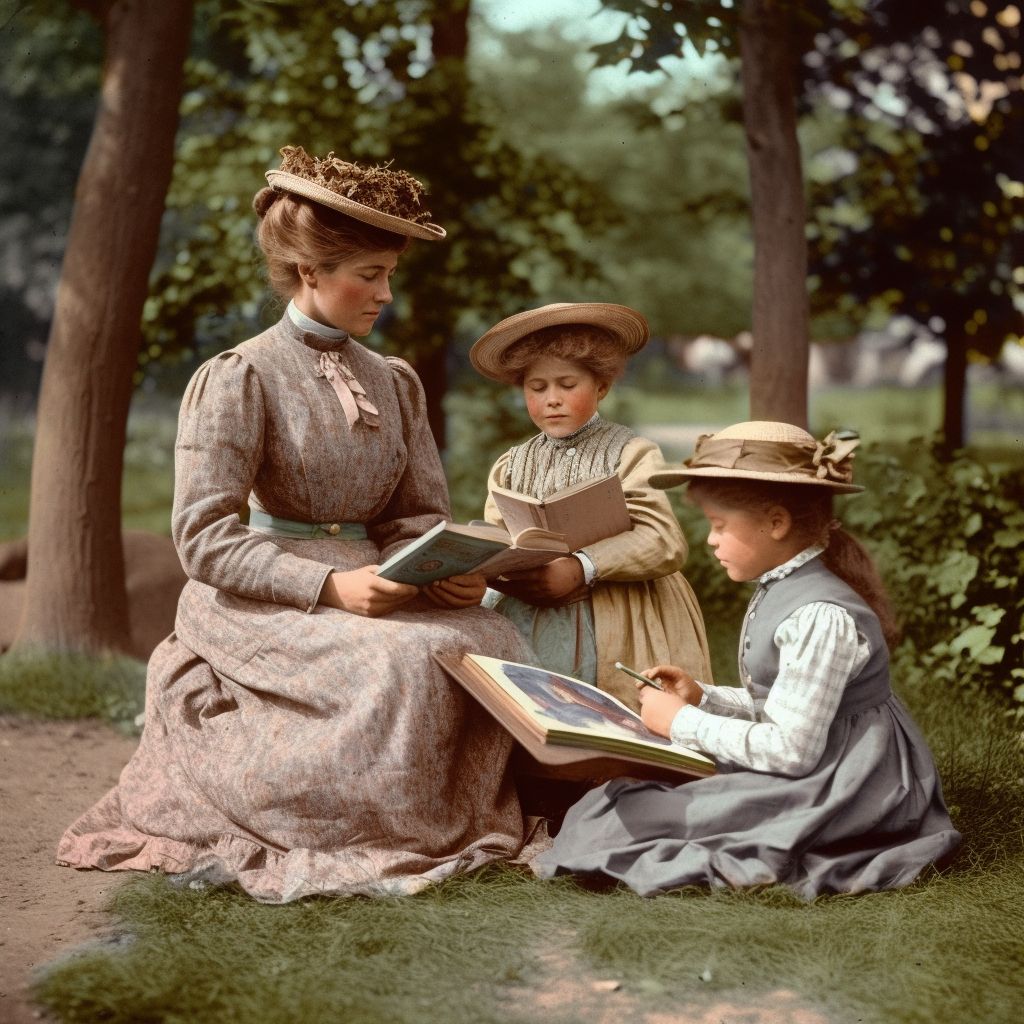Nanny
In the late 19th century, nannies play an important role in the upbringing and care of children, particularly in middle and upper-class families. These dedicated professionals are entrusted with the responsibility of nurturing, educating, and safeguarding the well-being of the children in their care. As society evolves and family dynamics change, nannies continue to adapt to the needs of the families they serve, providing essential support and guidance in a rapidly changing world.
Role of Nannies
Nannies are childcare providers who work closely with families to care for their children, often living in the family home or working full-time hours. Their duties typically include feeding, bathing, and dressing children, as well as providing age-appropriate educational activities and fostering emotional and social development. Nannies may also take on additional responsibilities such as light housekeeping, meal preparation, and assisting with errands related to the care of the children.
Education and Training
While formal education is not always required to become a nanny in the late 19th century, many nannies possess a strong background in childcare or have acquired their skills through hands-on experience. Some nannies may have attended specialized training schools or completed apprenticeships with experienced childcare professionals to further develop their abilities.
Many nannies are also skilled in areas such as first aid and basic medical care, providing an additional layer of support and safety for the children in their care.
Impact on Society
Nannies play a vital role in the lives of the families they serve, often becoming integral members of the household. As the structure of the family unit evolves in the late 19th century, with more women entering the workforce and family dynamics shifting, the need for reliable and dedicated childcare professionals like nannies becomes increasingly important.
Nannies provide stability and continuity for children during their formative years, helping to shape their emotional and intellectual development. By offering personalized care and attention, nannies help to foster a nurturing environment in which children can grow and thrive.
Challenges and Future Prospects
While nannies enjoy a certain level of prestige and respect within the households they serve, the profession is not without its challenges. Long hours and the demands of caring for children can be physically and emotionally draining, and nannies may face periods of isolation or homesickness, particularly when living away from their own families.
Additionally, the late 19th century sees the emergence of new ideas surrounding child-rearing and education, which may lead to changes in the role of nannies within the family unit. As society continues to evolve and new theories on child development gain traction, nannies must adapt their practices to meet the changing needs of the families they serve.
In conclusion, nannies in the late 19th century play a crucial role in the care and upbringing of children in middle and upper-class families. As society changes and family dynamics shift, nannies provide essential support and stability, helping to ensure the well-being and healthy development of the children in their care.
Type
Social Services

